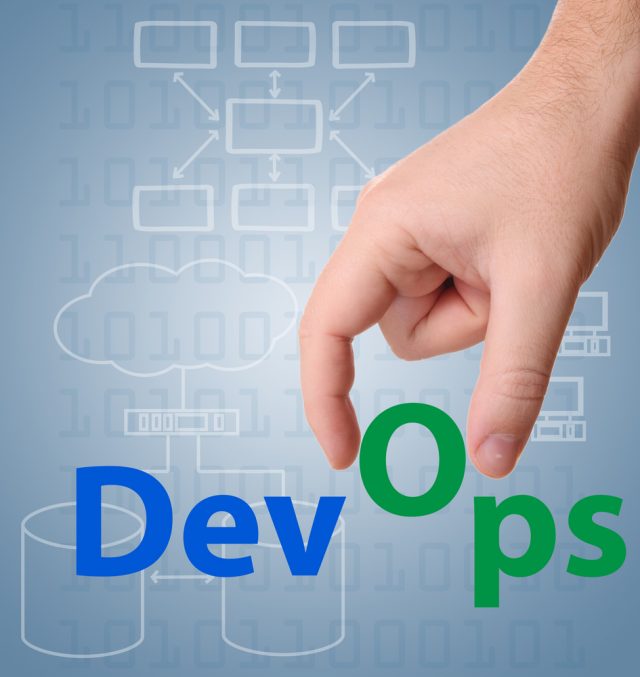The evolution of the DevOps corporate culture and where 'shift left' takes it next [Q&A]

DevOps has become the mainstream development culture in recent years, but like other areas of the tech world it continues to evolve.
Add in changes brought about by the pandemic, the Great Resignation, automation and more, and it's clear that the evolution is set to continue. We spoke to Shanea Leven, CEO of CodeSee to find out what changes have already taken place and what the future might hold.
BN: What effect has the Great Resignation had on the role of DevOps?
SL: The market demand for DevOps professionals was already high. In the midst of the Great Resignation, that demand is likely to skyrocket. A recent assessment of The Bureau of Labor Statistics by Harvard Business Review suggests resignation rates have been higher among those working in fields 'that had experienced extreme increases in demand due to the pandemic.' Tech-centric roles clocked in at a 4.5 percent increase in turnover compared to the following year -- one of the highest rates of mass exit across industries. For the DevOps engineers who are confident enough or just completely fed up with the way they've been treated by companies -- they will prosper, leaving behind those who can't exit their current companies to take the brunt of the work. And where does this leave companies? Companies need to sit up and take notice in order to pivot and make developer experience a top priority. Otherwise, the folks who are remaining will leave and new people won’t be retained either, creating a vicious cycle.
BN: What effect has remote working had on DevOps and developer culture?
SL: The numbers speak for themselves -- tech-sector roles are at high risk of being caught up in the current of the Great Resignation, and this is due in large part to the impact of remote working. Given many DevOps professionals were already embracing the connected virtual workplace, their effort and time on the job only increased as the bounds of the physical office space and time zones melted away. Pair this with a multi-year pandemic that forced time for self-reflection and job and soul searching, alike. Remote working has inspired many developers to truly consider what they need and want in an organization and role. In other words, there's no reason any more to put up with a company's bad culture or being treated 'as a resource' rather than a human being.
BN: How is the 'shift left' movement affecting DevOps teams now, and in the future?
SL: DevOps is going through a re-imagining -- we're witnessing a 'shift-left' similar to that we've seen in information technology and security operations. I predict this trend will continue in full force in 2022. The practice of DevOps has been drawing closer to developers for years. What was once a focused role on a team now spans teams -- integrated into everyday practices and responsibilities of many individual developers. Considering many developers are writing more code than ever before, it's likely their sway in organizations will continue to increase alongside their accountability to the success of the software.
BN: What can businesses do to enhance the developer experience and happiness at work while resisting employee burnout?
SL: Businesses committed to enhancing the developers' experience should double-down on identifying opportunities to automate development and operations that make it hard for the developer to write good code. The single best thing you can do is to simply ask them. The next best thing is to do what they ask. When businesses listen to, respect, support and invest in the entire DevOps lifecycle they're ultimately protecting the interests and needs of their dev talent. When developers are able to focus on the core areas of development knowing that their testing, monitoring, and deployment structures are actually reliable, they're able to reduce daily friction, responding to potential issues and identifying solutions with greater ease and efficiency.
BN: As DevOps has evolved, what has been the impact on developers' day-to-day experience?
SL: Any given developer only has so many hours in their workday, and organizations are struggling to expand their engineering teams. We expect a lot from devs today, with many carrying responsibilities spanning the SDLC. With this increased responsibility comes both benefits and challenges. Working in a DevOps model, developers are often able to progress and pivot with greater ease than ever before; it's an invigorated approach to development that can positively impact one's day-to-day experience, but also lead to ambiguity and overwhelm. So, while we've improved in some ways, we still have a long way to go to provide developers the ideal working environment.
BN: How can automation improve the developer experience and DevOps practices?
SL: As we're able to offload effort- and time-consuming tasks from the developer workload, they'll be positioned to focus on what they do best: writing great code. This said, it's likely toolchain consolidation or even tool replacement will be required of many development organizations in 2022. Today, many devs deploy their preferred tools to take on different parts of the DevOps lifecycle, resulting in fragmented data and metrics between tools and across workflows. It's a lot, and it has the potential to hinder innovation. Automation and orchestration offer a solution that spans the DevOps lifecycle. As we move into the future, smart organizations will look to platforms and standards that enable the seamless integration of task automation. The next level organizations will seek out tools to solve problems that have historically been considered unsolvable. A new generation of dev tools are out there attacking problems that have been around so long that they've been ingrained in how we build software and have been accepted but slow down every developer. These tools are meant to exponentially improve the developer experience.
Image credit: tkemot / depositphotos.com
